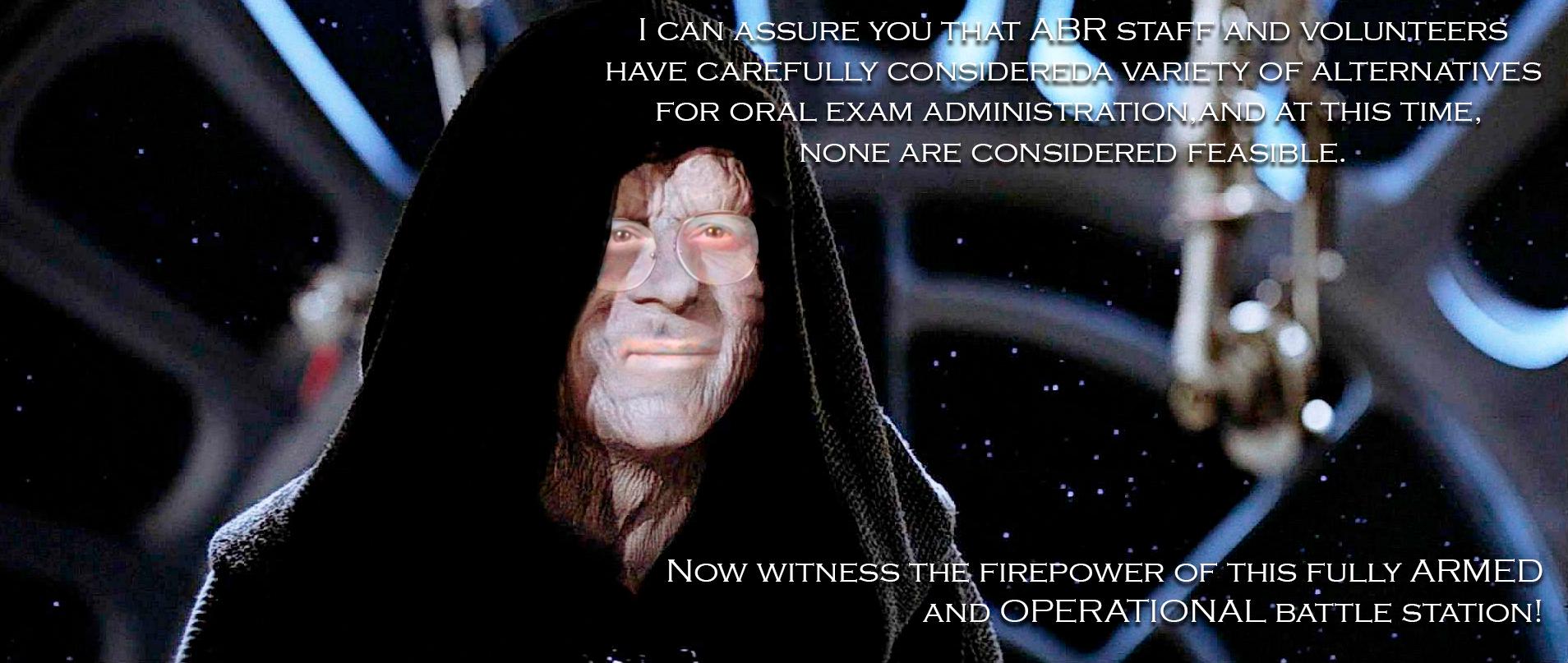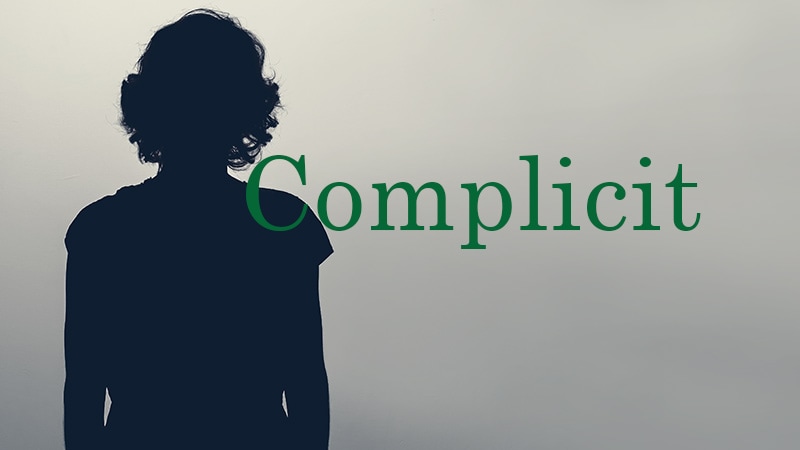- Joined
- Apr 8, 2019
- Messages
- 239
- Reaction score
- 1,104
Found it:
Until last year I thought that cancel culture on social media was something that only affected celebrities and politicians. Then I became the target of a campaign that was personally insulting and professionally alarming. The issue is how some members of our profession react to disagreement about accepted views. My offense was questioning the concept that we are training too many radiation oncologists. But the workforce controversy is not the point of this essay. The point is that challenging accepted concepts has been the driving force for the most positive advances in our field, and the uncivil, anonymous, and often inaccurate criticism that social media now encourages threatens progress in the future.
My purpose in entering the workforce discussion was to engage in civil discourse about an important topic for which data are conflicting. After decades on the front lines of academic radiation oncology, it seemed natural to question what many consider to be accepted dogma. For example, organ preservation, once considered unthinkable in breast, larynx, anal, and extremity cancers, is now a major focus of our specialty. Without questioning surgical dogma, we would not be treating early-stage lung cancer with radiosurgery. It is not an exaggeration to say that many of the most important contributions we now make to the field of oncology are the result of challenging consensus thinking in a thoughtful and professional manner. The purpose of this essay is to briefly summarize my story to demonstrate that the cancel culture exists in radiation oncology today in a way that threatens future progress in our field.
Cancel Culture
As explained by Forbes Senior Editor Evan Gerstmann, “There is no single accepted definition of cancel culture, but at its worst, it is about unaccountable groups successfully applying pressure to punish someone for perceived wrong opinions.” 1 Cancel culture behavior is a modern form of ostracism and harassment. Those who are subject to this ostracism are said to be "canceled."2
In January 2019, I participated in a discussion on a social media site run by an organization that requires participants to identify themselves. The subject of the discussion was the question “Are we over training the number of radiation oncologists?” Many people posted opinions strongly supporting the conclusion that we are training too many residents. After following the discussion for months, I posted a question: “Can someone share objective, not anecdotal, evidence/data that proves there is a surplus?”
Several people submitted responses to my query that I would classify as thoughtful but without objective data. To conclude the dialogue, I posted a seconddand finaldtime. I shorten my final post here for brevity: “Looking for objective evidence, not concerns and perspectives. Are there unemployed radiation oncologists who want to be working? If so, why? Is it because there are no jobs? Or because they have geographic restrictions? Or other reasons? This matters. Are average starting salaries going down? I haven’t seen any objective evidence of a glut from an economic, supplyedemand perspective.”
At this point a colleague notified me that my comments were the subject of severe criticism on a social media site that I do not monitor or participate in. Discussion posts on this site are anonymous, meaning participants do not identify themselves.
Yes, there was some cogent discussion of the topic with data presented and analyzed. One might question the assumptions and the data, but at least these posts were thoughtful, sincere, and devoid of personal attacks. However, “cancel culture” predominated with posts that did not address the fundamental issue but rather attempted to discredit me personally. It serves no useful purpose for me to list specific posts in this essay. General themes were malicious comments about my personal integrity, anti-foreign medical graduate xenophobia, and overt racism and sexism. Multiple posts made statements about salaries and department staffing that were highly inaccurate. The discussion went on for weeks. There were participants who defended me, my department, and the appropriateness of my simply asking for data. However, it was especially discouraging for me to see supportive posts met with counter posts suggesting that I required people to post something positivedanother blatant falsehood.
The attempt to “cancel” me on social media rather than discuss the workforce issue in a professional and civil manner does not concern me from a personal perspective. But it disturbs me greatly for what it means for our profession. The cancel culture behavior that I describe shows that some in our specialty are too ready to dismiss, insult, and even try to do real harm to those who are willing to question current dogma. If this is the case, I fear that the gloom and doom about the future of radiation oncology will become a self-fulfilling prophesy.
Recently, I reread the Red Journal obituary of one of the early giants of clinical radiation oncology, Dr Frank Ellis. At a celebration of his 100th birthday, attended by 89 of his trainees and many other luminaries, the tributes paid to Dr Ellis had a consistent theme: his belief and insistence that “we should accept no opinion that is not based on solid data or an absolutely firm and secure rationale. All points should be open for discussion, and any statement made from the Chief down to the youngest and newest employee would be open for questioning.” 3
Our ability as a specialty to safely question prevailing wisdom is at the heart of the progress we have made in radiation oncology. Losing our sense of curiosity is the shortest path to oblivion as a specialty.
Until last year I thought that cancel culture on social media was something that only affected celebrities and politicians. Then I became the target of a campaign that was personally insulting and professionally alarming. The issue is how some members of our profession react to disagreement about accepted views. My offense was questioning the concept that we are training too many radiation oncologists. But the workforce controversy is not the point of this essay. The point is that challenging accepted concepts has been the driving force for the most positive advances in our field, and the uncivil, anonymous, and often inaccurate criticism that social media now encourages threatens progress in the future.
My purpose in entering the workforce discussion was to engage in civil discourse about an important topic for which data are conflicting. After decades on the front lines of academic radiation oncology, it seemed natural to question what many consider to be accepted dogma. For example, organ preservation, once considered unthinkable in breast, larynx, anal, and extremity cancers, is now a major focus of our specialty. Without questioning surgical dogma, we would not be treating early-stage lung cancer with radiosurgery. It is not an exaggeration to say that many of the most important contributions we now make to the field of oncology are the result of challenging consensus thinking in a thoughtful and professional manner. The purpose of this essay is to briefly summarize my story to demonstrate that the cancel culture exists in radiation oncology today in a way that threatens future progress in our field.
Cancel Culture
As explained by Forbes Senior Editor Evan Gerstmann, “There is no single accepted definition of cancel culture, but at its worst, it is about unaccountable groups successfully applying pressure to punish someone for perceived wrong opinions.” 1 Cancel culture behavior is a modern form of ostracism and harassment. Those who are subject to this ostracism are said to be "canceled."2
In January 2019, I participated in a discussion on a social media site run by an organization that requires participants to identify themselves. The subject of the discussion was the question “Are we over training the number of radiation oncologists?” Many people posted opinions strongly supporting the conclusion that we are training too many residents. After following the discussion for months, I posted a question: “Can someone share objective, not anecdotal, evidence/data that proves there is a surplus?”
Several people submitted responses to my query that I would classify as thoughtful but without objective data. To conclude the dialogue, I posted a seconddand finaldtime. I shorten my final post here for brevity: “Looking for objective evidence, not concerns and perspectives. Are there unemployed radiation oncologists who want to be working? If so, why? Is it because there are no jobs? Or because they have geographic restrictions? Or other reasons? This matters. Are average starting salaries going down? I haven’t seen any objective evidence of a glut from an economic, supplyedemand perspective.”
At this point a colleague notified me that my comments were the subject of severe criticism on a social media site that I do not monitor or participate in. Discussion posts on this site are anonymous, meaning participants do not identify themselves.
Yes, there was some cogent discussion of the topic with data presented and analyzed. One might question the assumptions and the data, but at least these posts were thoughtful, sincere, and devoid of personal attacks. However, “cancel culture” predominated with posts that did not address the fundamental issue but rather attempted to discredit me personally. It serves no useful purpose for me to list specific posts in this essay. General themes were malicious comments about my personal integrity, anti-foreign medical graduate xenophobia, and overt racism and sexism. Multiple posts made statements about salaries and department staffing that were highly inaccurate. The discussion went on for weeks. There were participants who defended me, my department, and the appropriateness of my simply asking for data. However, it was especially discouraging for me to see supportive posts met with counter posts suggesting that I required people to post something positivedanother blatant falsehood.
The attempt to “cancel” me on social media rather than discuss the workforce issue in a professional and civil manner does not concern me from a personal perspective. But it disturbs me greatly for what it means for our profession. The cancel culture behavior that I describe shows that some in our specialty are too ready to dismiss, insult, and even try to do real harm to those who are willing to question current dogma. If this is the case, I fear that the gloom and doom about the future of radiation oncology will become a self-fulfilling prophesy.
Recently, I reread the Red Journal obituary of one of the early giants of clinical radiation oncology, Dr Frank Ellis. At a celebration of his 100th birthday, attended by 89 of his trainees and many other luminaries, the tributes paid to Dr Ellis had a consistent theme: his belief and insistence that “we should accept no opinion that is not based on solid data or an absolutely firm and secure rationale. All points should be open for discussion, and any statement made from the Chief down to the youngest and newest employee would be open for questioning.” 3
Our ability as a specialty to safely question prevailing wisdom is at the heart of the progress we have made in radiation oncology. Losing our sense of curiosity is the shortest path to oblivion as a specialty.



